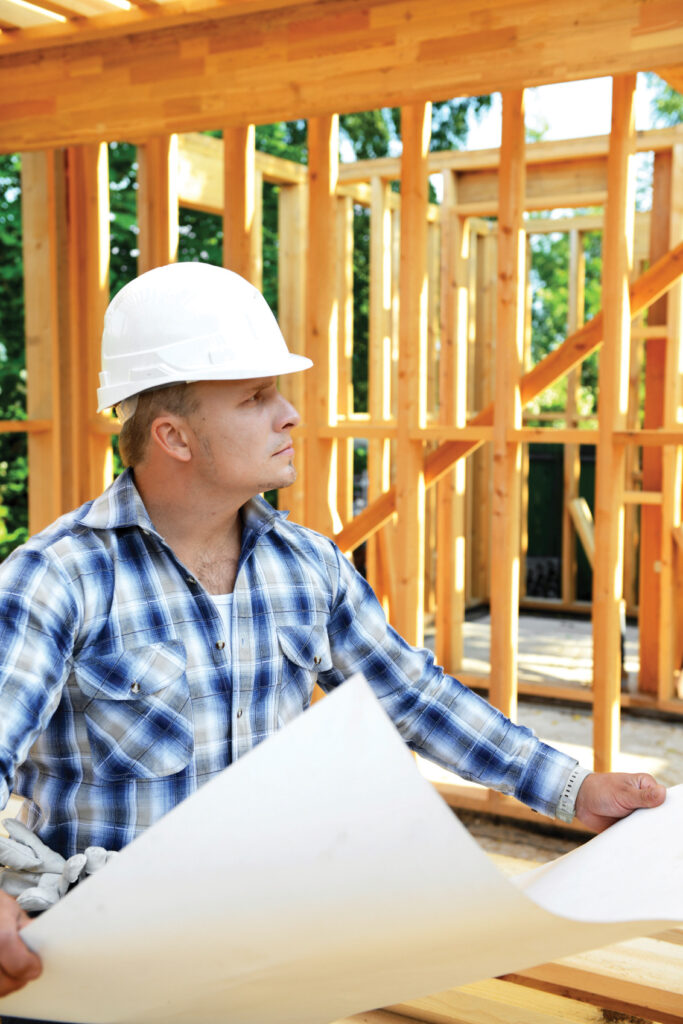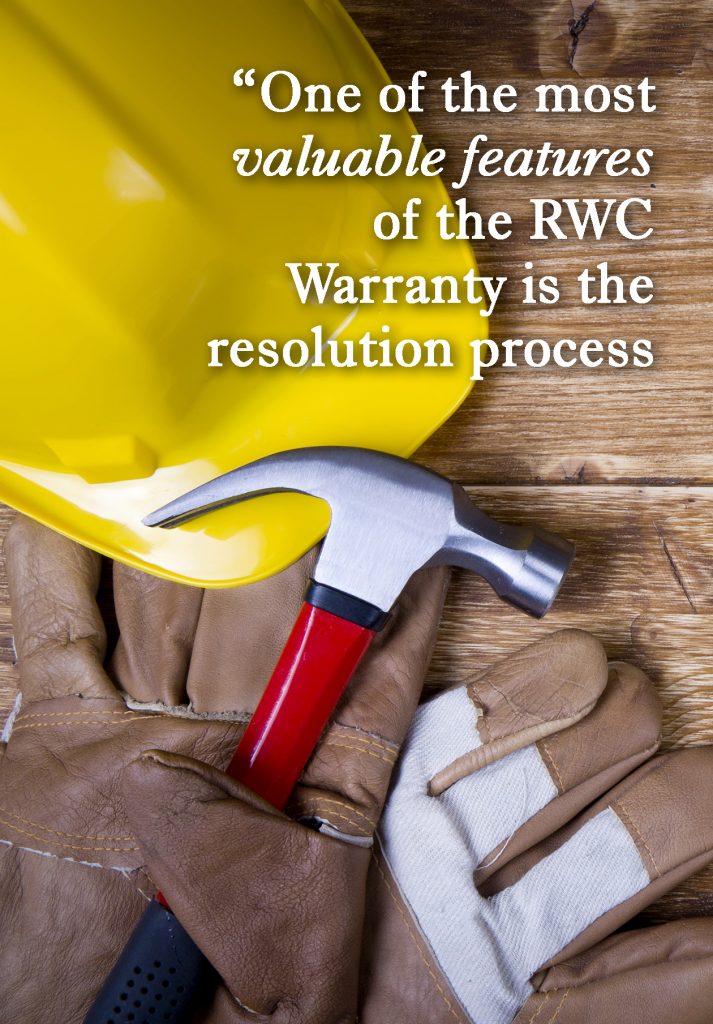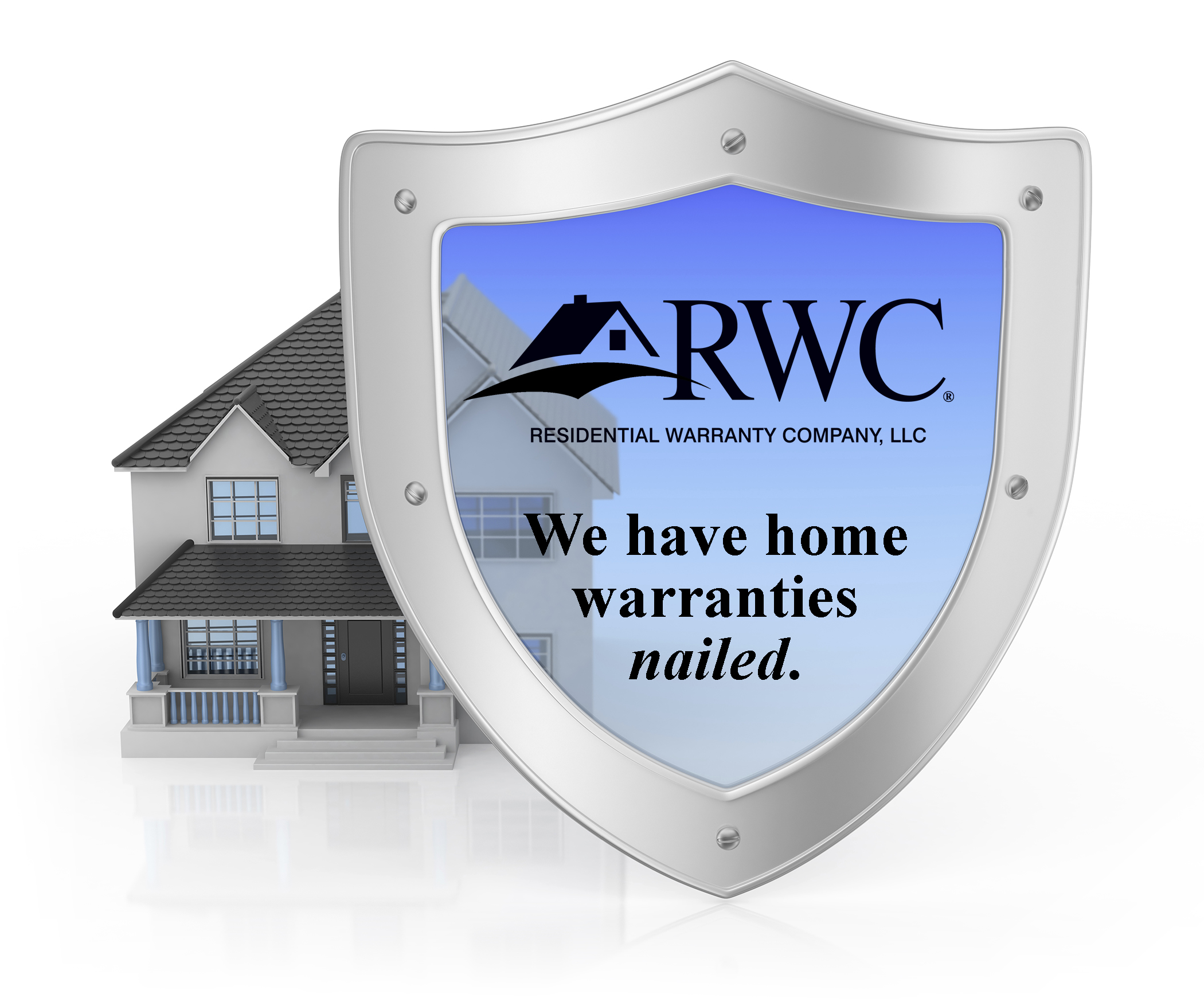RWC Insurance Advantage (RIA) recently launched a new website and if you haven't checked it out yet, we encourage you to do so! RWC Insurance Advantage is exclusive to members of the RWC and HOME of Texas warranty programs. Members can now request a quote, apply for coverage or request certificates all from their computer or mobile devices. Here's what RIA offers:
General Liability Insurance* - General Liability is insurance that protects you from a variety of claims including bodily injury to members of the public and damage to property belonging to others that arise out of your business activities. RIA can offer options in the form of an Occurrence Policy or a Claims Made policy. Please visit our website for FAQ’s on these coverage forms.
Umbrella and Excess Insurance* – In conjunction with McGowen Excess and Casualty, these policies provide you with additional limits (usually $1mm to $5mm) of liability above your General Liability policy. Since a General Liability policy protects your business from bodily injury and property damage claims that you become legally obligated to pay, it is essential that you have proper limits in place to protect your business. In today’s litigious society, a $1,000,000 of General Liability insurance may not be enough. Check out FAQ’s on our website. Look under products.
Builders Risk Insurance – We are an authorized agent for one of the worlds largest insurers…Zurich. Builders Risk insurance protects your financial interest in the materials, fixtures and/or equipment being used in the construction, or renovation of a building, or structure in the event they are damaged or destroyed by a covered cause of loss like fire, windstorm, vandalism or theft.
Contractors Equipment Insurance – With Zurich, Contractors Equipment coverage is property insurance that covers the loss of, or damage to covered equipment owned by you, or in your possession resulting from such hazards as fire, theft or vandalism.
As a leader in the residential home building industry we are committed to providing general liability insurance and select other coverages to members of Residential Warranty Company, LLC, throughout the United States*.
Before you renew coverage elsewhere, consider getting a quote with RIA. Just visit our website and click on the Get A Quote button and answer a few easy questions. We will reply via e-mail with a price indication.
*Insurance products may not be available in all states & are subject to underwriting requirements.
A home is one of the biggest investments a person will ever make and in order to keep that home glowing and increasing in value, a well-maintained property should be the goal for years to come. Of course, a warranty will provide protection, but seasonal maintenance by the homeowner is also key to long-lasting digs. As a professional in the industry, you’ve seen first-hand what irresponsibility will do to a residence. It’s imperative to remind your buyers that even though a home may be brand spanking new, regular maintenance is absolutely necessary to ensure safety, comfort, and retain resale value.
It’s easy to preach to a homebuyer about keeping up with seasonal tasks and send them on their merry way, but why not arm them with a comprehensive list of things they should be aware of? Steer them toward RWC's "season maintenance checklist" under the Homeowner's tab. This is a great tool for homeowners to stay on top of things. Furthermore, you as the builder must have gathered hundreds of maintenance tips during your career. Offer up those tips and hints as you meet with your clients throughout the home building journey.
Just for fun, here is a home maintenance quiz that will test your know-how. While this quiz does not address every conventional home maintenance project, it does provide helpful tips that may have been overlooked.
1. How often do forced-air furnace filters need to be changed?
At least every three months during the heating season.
2. What part of the faucet usually needs to be replaced when you have a water leak?
The washer.
3. Should you run hot or cold water through your garbage disposal?
Cold water.
4. How often should the moving parts of garage doors be oiled?
Every three months.
5. What tools can you use to unclog your drains?
A plunger and a plumber’s snake.
6. What tool can be used to unclog a toilet?
Coil spring-steel auger.
7. What faucet part needs to be cleaned every three to four months?
Aerator — the screen inside the end of the faucet.
8. What can you use for traction on icy sidewalks, steps, and driveways?
Cat litter or sand — never use salt because it damages the pavement.
9. Where should the fire in your fireplace be built?
On the irons or grate, never on the fireplace floor.
10. What will prevent soot and add color to the fire in your fireplace?
Throw in a handful of salt.
11. Where should your firewood be stored?
Outside, away from your house and not directly on the ground.
12. What helps keep unpainted concrete floors easy to keep clean?
Concrete Sealer.
13. What should you use to clean unpainted concrete floors?
A solution of 4 to 6 tablespoons of washing soda in a gallon of hot water. Mix scouring powder to the solution for tough jobs.
14. Why should frozen pipes be thawed slowly?
Frozen pipes should be thawed slowly to prevent the formation of steam, which could cause the pipe to burst.
15. How often should your roof be inspected?
A qualified roofer should inspect your roof every three years.
16. What should be regularly checked on your security system?
The alarms and circuit breakers should be checked to make sure they are in working order and the sensors should be inspected one by one.
17. At what temperature should your water heater be set?
120 degrees Fahrenheit
18. How often do skylights need to be inspected?
Skylights should be inspected each time your roof is inspected so leaks don’t develop from cracks and interruptions around its seals, caulking and flashings.
19. What can you use to help a window slide easily?
Rub the channel with a piece of paraffin.
20. What should you look for when you inspect your siding yearly?
Determine if wood-sided homes need to be repainted; check to see if the caulking around the windows and doors has split and cracked, and replace the caulk; clean the mildew; trim shrubbery away so it does not touch the siding.
(Quiz provided by NAHB.org)
“Limited inventory”. “Rising interest rates”. “Barbell of imbalance”. Many homebuyers and real estate professionals alike are finding themselves challenged by the law of scarcity in today’s market. Simply put, there are more buyers than there are homes to fill. Anyone in the home building and buying world is intimately aware of the impact presented to us with this unique situation. There are several factors creating this imbalance.
 First-time homebuyers who are starting families and move down buyers who are looking to downsize have put a strain on the inventory availability. The need for each group is similar, the wants may differ, but the need can be met with access to more inventory of affordable homes. With the average sales price of homes increasing exponentially, the opportunities for these buyers is continually diminished. Add in the threat that homes will now cost more because of rising interest rates, and a crisis is created. Interest rates are not currently creating a deferral impact upon buying trends, however, as the prices continue to rise, it prices many families out of the market entirely.
First-time homebuyers who are starting families and move down buyers who are looking to downsize have put a strain on the inventory availability. The need for each group is similar, the wants may differ, but the need can be met with access to more inventory of affordable homes. With the average sales price of homes increasing exponentially, the opportunities for these buyers is continually diminished. Add in the threat that homes will now cost more because of rising interest rates, and a crisis is created. Interest rates are not currently creating a deferral impact upon buying trends, however, as the prices continue to rise, it prices many families out of the market entirely.
What does this all mean? To put it bluntly, the market needs more homes for the fixed income and average income buyers. Meeting these buyers needs starts at a price point and includes flexible options. Fixed income buyers who are downsizing tend to fall into the group of sellers that are cashing in on the equity increases in their current homes. They may be retiring or reducing their workload, pushing them toward fixed income levels. However, first-time homebuyers have a different hurdle. These apartment and rental home buyers need better programs in place to help them get out of the rental trap. With the increased need for rentals came the increased cost of renting. Many of the options available for renters taps out their income which reduces the chances that they can save money for a down payment. A good rental history shows they can afford the home, but they don’t have the income set aside for a 20% down payment. Does your company offer incentives to first-time homebuyers? What can your trusted lenders do to help them?
Although it is a challenge for the buyers, it is a positive for sellers and builders who are looking to gain a profit after a long stretch of being at a standstill. This opportunity for growth for builders is understandably a cautious undertaking. Willingness to work with these buyers can be rewarding to builders but it is wise to take precautions to avoid the pitfalls of the past. Ensuring that you work with other professionals who are licensed properly and that you are providing a high quality, warranted homes will set you as a builder apart from the crowd. Many lenders are now requesting that a 10-year structural warranty is in place when the buyer is using FHA/VA and USDA financing. As a member in good standing with RWC, you are in a position to meet this requirement and can meet the buyers lending needs.
In conclusion, home buying needs and demands are at the crossroads between availability and affordability. Somewhere in the middle is exactly where builders should strive to be to reap the rewards. As a tradeoff, qualified buyers are willing to settle for higher interest rates if given the opportunity to achieve the long-term goal of homeownership. Scarcity is real, but buyers are abundant.
 This weekend marked the 48th anniversary of Earth Day. On April 22, 1970, millions of Americans came together to fight for a clean, sustainable environment and that fight still continues today. Consumer-awareness has increased over the years, and so has the demand for Earth-friendly products and procedures. According to the NAHB, and in conjunction with a series of studies conducted by Dodge Data & Analytics, “at least one-third of surveyed single-family and multifamily builders said that green building is a significant portion of their overall activity. And by 2022, this number should increase to nearly one-half in both sectors.”
This weekend marked the 48th anniversary of Earth Day. On April 22, 1970, millions of Americans came together to fight for a clean, sustainable environment and that fight still continues today. Consumer-awareness has increased over the years, and so has the demand for Earth-friendly products and procedures. According to the NAHB, and in conjunction with a series of studies conducted by Dodge Data & Analytics, “at least one-third of surveyed single-family and multifamily builders said that green building is a significant portion of their overall activity. And by 2022, this number should increase to nearly one-half in both sectors.”
You, as a builder, can have a big impact from the get-go; essentially starting with a clean slate for every home you build. How can you contribute to the home’s carbon footprint? Simply look around a typical house. There are opportunities everywhere to make improvements or conserve. Do you incorporate environmentally-friendly features such as water saving faucets and toilets, low VOC paints and adhesives, and energy-efficient appliances and systems? Not only is saving money for the long haul important to buyers, but the way the home itself impacts the future (and present) environment is also significant.
House hunters today have a lot of choices when it comes to choosing a builder. Will you measure up? Do you have special certifications such as LEED or Energy-Star? Have you won awards for your ecological principals? If green building is in your wheelhouse, then show off -- highlight these practices on your website, social media, on promotional materials, and by word of mouth! Those are exactly the types of things that consumers today are attracted to.
More and more builders are joining the green home movement with sensitivity to nature preservation and homeowner requests. Slowly but surely, eco-friendly elements are becoming the ‘standard’. If you haven’t done so already, incorporating just a few of these building practices will be beneficial for your business. With this buying preference in mind, there is much opportunity and value in this market. Prospects will certainly do their research when planning for their dream home and you may just win them over when Mother Nature is in your corner.
It is perennially important that builders focus on keeping whatever profits they can generate by managing their risks and limiting their potential liability. Homeowner claims for defective construction can eat away profit in the form of repeated customer service and punch list work, prolonged disputes with customers, payments to disgruntled homeowners, and attorney fees. Here are some suggestions for limiting that exposure.
 Employ proper construction practices. This may seem like an elementary point, but contractors who are building new designs in unfamiliar locations or who are desperate for sales are more likely to fall short in this regard. Proper education for workers, regular inspection by builder representatives, and professional oversight from engineers and attorneys, for example, as needed, can limit builders’ exposure to homeowner claims and to other risks like OSHA fines and penalties.
Employ proper construction practices. This may seem like an elementary point, but contractors who are building new designs in unfamiliar locations or who are desperate for sales are more likely to fall short in this regard. Proper education for workers, regular inspection by builder representatives, and professional oversight from engineers and attorneys, for example, as needed, can limit builders’ exposure to homeowner claims and to other risks like OSHA fines and penalties.
Watch for and avoid subcontractor problems. Your contract is with your customer. If a subcontractor’s work harms your customer, that customer will look to you to make it right. Use capable subcontractors and inspect their work so that you know you are getting what you pay for. Make certain your subcontractors are insured and consider being named as an additional insured on their liability insurance policies.
Service your customer. As we so often hear in lending and home building advertisements, the purchase of a newly built home is almost always the largest transaction your customer will make in his life, and he will likely spend ten or twenty or thirty years paying for it. Consequently, your customer will expect you to address any reasonable post-settlement concerns he has about your product. Prompt and courteous communication with home buyers after the sale and faithful attention to those concerns that are properly your responsibility will not only create a positive buzz about you as a builder but will also reduce the chances that a homeowner will sue you.
Avoid the problematic customer. Some customers are simply not worth the trouble. They will often demonstrate this early in the relationship, before the contract is signed, by making impossible demands on your time, asking for incredible reductions in price, or complaining about other builders they have seen or other businesses with whom they have had disputes. While some such demands and complaints may be legitimate, it is important to recognize the customer who will never be happy. That kind of customer limits your ability to make a profit on a house, often retains a lawyer to sue you and should be avoided whenever possible.
Shift the risk. Make sure you have adequate insurance to protect you against liability risks and take full advantage of your associates’ insurance policies by being named an additional insured whenever appropriate. Purchase a warranty product to provide to your home buyers to shift some of the risk for construction defects onto a third party.
 Don’t be afraid to settle homeowner cases. If sued or threatened with suit immediately ask your attorney for an assessment of the chances of success and an estimate of what it will cost to get to that result. Too often clients complain that fighting a lawsuit has cost them more than settling it earlier would have. Some battles must be fought, but not all of them. Pick the ones you want to fight and have at it. For each of the others, make a good business decision and solve the problem on the most cost-effective basis possible.
Don’t be afraid to settle homeowner cases. If sued or threatened with suit immediately ask your attorney for an assessment of the chances of success and an estimate of what it will cost to get to that result. Too often clients complain that fighting a lawsuit has cost them more than settling it earlier would have. Some battles must be fought, but not all of them. Pick the ones you want to fight and have at it. For each of the others, make a good business decision and solve the problem on the most cost-effective basis possible.
Manage your attorney fees. Lawyers are struggling with the same economy you are. If a lawyer has quoted you a certain rate, you should not hesitate to negotiate with her to see if she will take the case for less. Insist that a fee agreement is prepared in writing for signature by you and your lawyer. Encourage the lawyer to assign less complicated work to less expensive members of the firm like associates, paralegals, and clerks. Finally, obtain an estimate of the cost of defending the case up front. This provides you with information necessary to determine whether you should settle the case, helps with budgeting, and serves as a cap on fees by at least requiring a persuasive explanation from your attorney if the cost of defending the case exceeds what was estimated.
Consider alternative and early dispute resolution options. Arbitration is often less expensive than a full-blown jury trial. Mediations offer opportunities for adversaries to sit down together and work with a neutral third party to resolve disputes. These alternative dispute resolution options are less combative and less expensive, and when employed early, can result in significant savings in attorney fees and costs for all parties involved in the dispute.
For a builder to succeed in any economic conditions, he must accept some risk of loss and exposure to liability. It is good business sense to implement strategies to limit those risks and exposures, especially when money is tight and so many builders are conducting business in new ways.
In addition to the strategies listed here to help reduce risk and exposure, builders who include a warranty on their homes are making a smart decision. A warranty not only eases the buyer’s mind should a defect arise in the future, but it also limits the builder’s liability, thus helping them keep as much of their hard earned profit as possible.
 A new home is a major purchase, and homeowners will certainly weigh the pros and cons when choosing a builder. Of course, a builder’s reputation, integrity, craftsmanship, and success stories will lay the foundation (um, pun intended), but one surefire way to assure buyers they’re in good hands is to include an RWC new home builder warranty with the home. If unforeseen circumstances should arise and a builder is unable to honor their commitment, a written, insured warranty will be a lifesaver.
A new home is a major purchase, and homeowners will certainly weigh the pros and cons when choosing a builder. Of course, a builder’s reputation, integrity, craftsmanship, and success stories will lay the foundation (um, pun intended), but one surefire way to assure buyers they’re in good hands is to include an RWC new home builder warranty with the home. If unforeseen circumstances should arise and a builder is unable to honor their commitment, a written, insured warranty will be a lifesaver.
So let’s talk about one of the most valuable features of the RWC builder warranty -- the resolution process. All Unresolved Warranty Issues have the opportunity to benefit from the warranty’s resolution process. An Unresolved Warranty Issue is defined as, “All requests for warranty performance, demands, disputes, controversies and differences that may arise between the parties to this Limited Warranty that cannot be resolved among the parties. An Unresolved Warranty Issue may be a disagreement regarding:
- the coverage in this Limited Warranty;
- an action performed or to be performed by any party pursuant to this Limited Warranty;
- the cost to repair or replace any item covered by this Limited Warranty.”
Builders often wonder, do I become involved or should I let RWC handle it? The answer is... the Member's involvement is crucial to a resolution and here's what's involved:
Mediation is the first step to resolution. The Member’s proactive communications is critical. Upon receipt of a homeowner’s proper written notice, RWC will communicate with the Member and the Homeowner. We’ll discuss the relevant information, actions taken, and coverage standards that apply. RWC will also explain why an issue is not covered and we’ll secure the Member an opportunity to resolve the issues.
Inspection of the issue is another avenue of resolution. As the Administrator, when the insurer is the warrantor and responsible party under the warranty, RWC will perform an inspection of the issue. The Member’s involvement in providing RWC with all relevant information, such as a copy of the Member’s customer service file is important to RWC having complete data prior to making a coverage determination. The Member is encouraged to discuss the issue with RWC and provide any relevant construction information that would assist RWC with understanding the construction practice that was utilized.
Arbitration is the final and binding step. If the request cannot be resolved through mediation or the Homeowner disputes RWC’s coverage determination, binding arbitration is the next step provided under the warranty’s resolution process. The Homeowner begins the arbitration process by giving RWC written notice for arbitration of the Unresolved Warranty Issue. The decision of the Arbitrator shall be final and binding upon all parties. When the Member is the Warrantor, participation in the arbitration proceeding is essential to the arbitrator understanding the Member’s position and the Member’s warranty obligation. The arbitration shall be conducted in accordance with the Limited Warranty and the rules and regulations to the extent that they are not in conflict with the Federal Arbitration Act.
Mediation, Inspection, and Arbitration……3 fundamental steps to RESOLUTION!
In today’s economy and its effect on the residential home building industry, having the RWC warranty as a source of resolution for homeowners and builders to resolve their disputes is an excellent and proven customer service tool. It also gives homeowners a confidence in knowing that if their builder no longer remains in business there is a dependable warranty standing behind their home.
 You know homebuyers. They always have lots of questions. And not only just for you but they want to know about the products you used in their home. Below are many of the questions we get on a regular basis about the warranty you are providing with the homes you build. We just thought you should know in case any of these questions come up in your own conversations with your customers. If you need more information, don’t hesitate to give us a call.
You know homebuyers. They always have lots of questions. And not only just for you but they want to know about the products you used in their home. Below are many of the questions we get on a regular basis about the warranty you are providing with the homes you build. We just thought you should know in case any of these questions come up in your own conversations with your customers. If you need more information, don’t hesitate to give us a call.
What is the value of an RWC warranty to my homebuyers?
- An RWC warranty provides insured, written coverage on various items for a specific period of time.
- Third party assistance to resolve customer service issues is available under all of our programs.
- Homeowners receive a clearly written warranty document spelling out exactly what is and is not covered.
- The resale value of your buyer’s home is increased when our warranty is transferred to the next owner.
- Homeowners have assurance that assistance is available if a covered item is defective.
- Builders wishing to use RWC or an Affiliate’s warranty must demonstrate technical competence, financial stability and ethical business dealings with their customers. Knowing that your builder is a member of one of our programs is assurance that these standards have been met or exceeded.
- The average cost to repair a structural failure exceeds $30,000. Having a warranty in place means that covered structural components will be repaired without causing you or your homeowner serious financial hardship.
- There is a greater likelihood of a major structural defect developing in a home than there is a fire which causes major damage. Homeowners probably have insurance to protect against fire damage. Why not be protected from structural failures as well?
What exactly is covered under my warranty?
RWC and Affiliates have over 75 different warranty options. So the answer to this question depends on which warranty was placed on the home. Coverage varies depending on the program selected by the Builder and the state in which the home is located. Refer to the warranty book received at closing for exact coverage and warranty terms.
How does a homeowner start the claims process?
The specific procedures to address a potential defect in a home are spelled out in the warranty book. The homeowner must send written documentation either by email to RWC at warranty.resolution@rwcwarranty.com or via certified mail, return receipt requested in order to initiate this process. We do not accept telephone or fax requests at this time.
What are mediation and arbitration?
RWC knows that, in the majority of cases, the root of many disputes is the lack of communication between a builder and a homeowner. Sometimes, all it takes to get an issue resolved is someone to take on the role of mediator and assist the others in coming to a fair and reasonable agreement, based on the warranty standards provided. Prior to heading to formal arbitration or costly litigation, RWC does its best to mediate disputes between Members and Homeowners.
Arbitration is a formal process conducted by an independent, neutral arbitrator to resolve disputes between two or more parties. In the case of our warranty programs, RWC uses arbitrators experienced in arbitrating residential construction matters. Unless prohibited by law, the decision of the arbitrator under our programs is binding on all parties, including the homeowner as well as the builder.
Your buyer has questions about the paperwork received regarding their home’s enrollment (duplicate book, incorrect information on Application for Warranty, etc). How do they contact RWC?
For questions regarding the Application for Warranty Form or any other Enrollment Paperwork issue, the homeowner may contact our main office at 717-561-4480 or click here and fill out our information request form.
 The last couple decades have seen dramatic changes in the relationship between builders and their customers. A generation ago construction defect litigation rarely affected builders. In many jurisdictions, the old legal maxim caveat emptor, or “let the buyer beware”, applied to the sale of new homes. Twenty-first-century American society has turned that principle on its head. A more accurate watchword in these times is caveat builder or “let the builder beware” of litigious homeowners and plaintiffs' attorneys bent on making a lucrative monetary recovery in court for every perceived defect in every new home.
The last couple decades have seen dramatic changes in the relationship between builders and their customers. A generation ago construction defect litigation rarely affected builders. In many jurisdictions, the old legal maxim caveat emptor, or “let the buyer beware”, applied to the sale of new homes. Twenty-first-century American society has turned that principle on its head. A more accurate watchword in these times is caveat builder or “let the builder beware” of litigious homeowners and plaintiffs' attorneys bent on making a lucrative monetary recovery in court for every perceived defect in every new home.
Residential construction litigation has increased in frequency and expense dramatically in the past two decades and exponentially in the past few years. Homeowners recover hundreds of millions of dollars from builders every year, and a typical settlement of a condominium association claim is not measured in thousands of dollars, but in millions of dollars.
A recent study revealed that more than half of all homeowner claims are about actual work performed in the building of the house and not about design, materials or maintenance. These complaints can create logistical headaches for builders and can lead to litigation that is expensive and tends to distract builders from their primary focus of building and selling homes. Express home warranties reduce the work, anxiety, and expense of these kinds of claims by spelling out the rights and remedies of the parties and by providing for arbitration, a quick and relatively inexpensive method for resolving disputes.
Arbitration provisions in express warranties provide that mutually agreed upon, neutral arbitrators hear the evidence from the parties and determine, without passion or prejudice for either side, who owes what to whom. Because most arbitration services have streamlined procedures, and because there are no juries for whom the lawyers must “dramatize” the case, arbitrations often result in less expense and reduced animosity between the parties.
In today's world, there is no reason why builders or homeowners should beware of dealing with each other after the settlement on a new home. If a builder provides his customer with an express warranty administered by a neutral third party, such as a new home builder warranty by RWC, both the builder and the homeowner can enjoy peace of mind because they have a clear and written description of how the home should perform and a quick, fair, and inexpensive process for resolving any disputes that might arise. All of RWC's warranty programs include out effective warranty resolution process which includes mediation and, if needed, formal arbitration.
If you need information on the procedures and/or rates to enroll ALL your building projects (remodeling, commercial, detached garages, condominiums, townhomes, etc.) with RWC to provide yourself with the most warranty protection available, contact your Account Executive at 800-247-1812, Ext 2149.
 It takes many components to build a home, and as a builder, you have to make many decisions to make. The homes you build need to be of quality construction, attractive and offer inviting features to pull in buyers. Though not a physical characteristic such as a large kitchen island or crown molding, a new home warranty is an equally impressive detail that proves to be advantageous over and over again.
It takes many components to build a home, and as a builder, you have to make many decisions to make. The homes you build need to be of quality construction, attractive and offer inviting features to pull in buyers. Though not a physical characteristic such as a large kitchen island or crown molding, a new home warranty is an equally impressive detail that proves to be advantageous over and over again.
If you haven’t ever thought about offering a warranty on your homes or are wondering “What’s in it for me?”, Residential Warranty Company, LLC (RWC) has the answers.
1. Opens the Door:
Homeowners looking for assurance that they have picked a quality builder are more confident in their choice when the RWC warranty comes with their home. And RWC’s approval by FHA and VA can assist you with your sales and help eliminate inspections and facilitate settlements.
2. Levels the Playing Field
Customer service can be a tricky issue. Homebuyers today can be demanding and unfortunately, too often unreasonable. Yet your reputation and future referrals often hang in the balance. You can provide an implied warranty (increase your exposure) and take a chance. Or you can provide the RWC written warranty (limit exposure) and enjoy its benefits. Specific warranty standards help you manage customer service problems and reduce costs. The RWC warranty puts “reason” back into the equation and lets you provide fair customer service. And when disputes arise - as they certainly will - RWC offers effective mediation and binding arbitration.
3. Marketing Tool
Hammers...saws...nails...it takes lots of tools to build a house. It also takes lots of tools to build a business and RWC provides you with some great marketing tools. Buyers today want choices and RWC offers more choices in warranty plans than any other warranty company. Convincing a buyer that you have what he wants or needs is the surest way to a sale. We want to help you convince that buyer. Not only does RWC offer a 10 year new home warranty, but a variety of other warranties are available as well. Other options include remodeling warranties, detached garage, building systems, HUD-code warranties, and customized state warranties... just to name a few. See our entire menu of choices here.
Don’t hesitate ~ RWC is a great addition to your toolbox! Talk to an RWC Account Executive today about the benefits of being an RWC Member or click here to get a warranty quote.
MORE PROSPECTS = MORE POTENTIAL BUYERS = MORE HOMES SOLD
As the saying goes, you have to spend money to make money. Of course, everyone wants the promise of a great return-on-investment (ROI) on home renovations, but not all projects will yield a lofty payout. Decisions today can make or break a sale years down the road. So how does one choose which projects to tackle? Real estate guru Homeadvisor.com states these are the top five remodeling projects that will give homeowners the best bang for their buck:
FIBERGLASS INSULATION: 107.7% ROI: New insulation isn't exactly #1 on a home owner's to-do list, but those puffy sheets of energy efficiency will warm wallets with long-lasting savings. Insulation may not be pretty to look at, but it saves money and improves comfort.
ENTRY DOOR REPLACEMENT: 90.7% ROI: Secure and attractive! A quality steel door is a great choice for a home upgrade, plus it provides extra security and prevents unwanted drafts.
MANUFACTURED STONE VENEER: 89.4% ROI: Cheaper than natural options, engineered stone siding will give a home the revival it deserves while keeping the budget in mind. And as a bonus, today's fabricated products look just like the real thing! Natural stone also tends to put stress on the frame and foundation, so it's a win-win for this lighter alternative.
GARAGE DOOR REPLACEMENT: 85% ROI: Not only an aesthetic renovation, replacing the garage door also serves other purposes such as improved security and energy efficiency. A fresh design will surely give the home's exterior a boost in curb appeal.
MINOR KITCHEN REMODEL: 80.2% ROI: Small kitchen remodels ranging from $5,000 to $25,000 boasts a favorable return. Kitchens tend to be the hub of the home, so it only makes sense to make it work in your favor. Whether simple changes or reflowing the layout -- improving the design and usability of the space will pack a punch.
